 Home >
Corporate News >
NMS Partners with Jiangxi Automation Society to Establish “Technology Service Station” and Forge a New Chapter in Innovation and Development
Home >
Corporate News >
NMS Partners with Jiangxi Automation Society to Establish “Technology Service Station” and Forge a New Chapter in Innovation and Development
 2024.09.27
2024.09.27
On September 13, Nanchang Mineral Systems Co., Ltd. (NMS) officially signed a cooperation agreement with the Jiangxi Association of Automation to jointly establish a Technology Service Station. This marks the beginning of a new chapter in their partnership for technological innovation. Leaders from the Nanchang Association for Science and Technology attended the event to witness this important moment and presented a plaque to commemorate the collaboration.
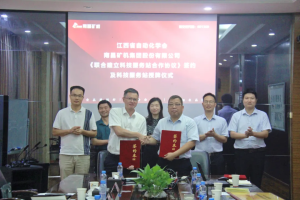
The purpose of this collaboration is to fully leverage the organizational structure and talent resources of the Jiangxi Association of Automation, while establishing close coordination mechanisms with provincial and municipal science and technology associations, relevant departments, and pilot cities. This will provide NMS with comprehensive technological services and talent support, helping the company achieve technological innovation and enhance its competitiveness.
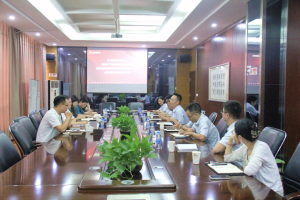
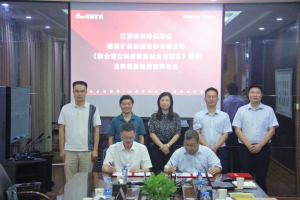
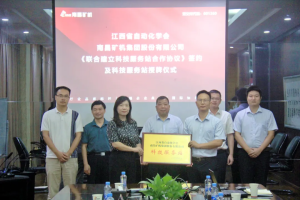
According to the cooperation agreement, both parties will uphold the principles of innovation, coordination, green development, openness, and shared growth. The partnership will focus on fostering new quality productive forces through technological talent cultivation and promoting scientific innovation, with the goal of boosting corporate development and enhancing core competitiveness. By establishing the Technology Service Station, the partnership will create a long-term, comprehensive, stable, deep-level, and multifaceted strategic collaboration.
The Technology Service Station will take on diverse functions such as decision-making consultation, technical research and development, technical training, talent cultivation, and recruitment, providing strong support for the intelligent and high-end transformation of the company’s equipment manufacturing technology. Leveraging the Jiangxi Association of Automation, the station will organize expert consultations or technical evaluations, utilizing a think tank of high-level experts to analyze the strengths and weaknesses of the company’s product technologies as well as industry development trends, offering constructive advice and suggestions for the company’s growth. Focusing on product upgrades and structural adjustments, both parties will collaborate to define and implement a series of key technology projects. Together, they will develop, convert, and promote new products, processes, technologies, and materials, working to overcome the technical bottlenecks that limit NMS products, increase the technological content and market competitiveness, and drive technological innovation for the company.
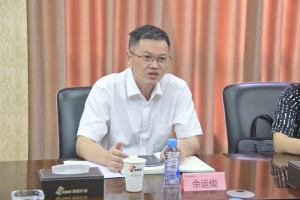
Yunjun Yu, Secretary General of the Jiangxi Association of Automation, stated that the association will align closely with the specific needs of NMS, particularly in the areas of technology, quality management, safety control, and business transformation. The association will organize expert teams to conduct scientific consultations and technical training, helping the company enhance its overall development capabilities. Additionally, the association will assist NMS in developing product technology standards, evaluating scientific achievements, and building an innovative talent cultivation mechanism, contributing to the recruitment and training of top talent for the company.
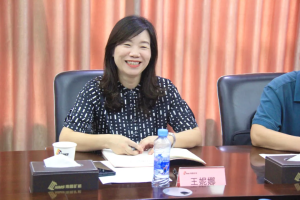
Nina Wang, President of the Nanchang Association for Science and Technology, highly praised the partnership between the two parties. She emphasized that the establishment of technological platforms and the integration of scientific resources play a crucial role in promoting technological innovation for both enterprises and the region. She noted that one of the key responsibilities of the Science and Technology Association is to integrate local resources to better serve local businesses, while also providing researchers and technology professionals with opportunities to connect directly with factory floors and agricultural fields. She expressed her happiness in facilitating and witnessing the cooperation between NMS and the Jiangxi Association of Automation. Once the Technology Service Station is established, it will help the company improve quality, reduce costs, and enhance efficiency from a technical perspective, while also boosting the research capabilities and skill levels of scientific professionals. With mutual benefit as the foundation, Wang is optimistic about the future of this collaboration. She also stated that the Science and Technology Association will continue to act as a bridge, creating broader collaboration platforms for researchers and businesses, ensuring that technological innovation serves economic and social development more effectively. Furthermore, the association will continue to empower companies by recommending, training, and recruiting talent, driving innovation forward.
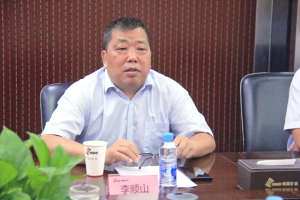
In his speech, Shunshan Li, Chairman of NMS, emphasized the importance of technological innovation for the company’s development. He noted that “Tech-driven NMS,” the first of the company’s “Five NMS Strategies,” reflects the company’s strong commitment to and focus on technological innovation. Li expressed his hope that with the strong support of the Science and Technology Association and the Jiangxi Association of Automation, the establishment of the Technology Service Station will put innovation into practice, enabling the company to achieve high-quality growth and create more value for society. (Xiaohan Liu)
